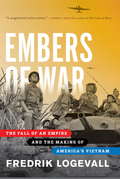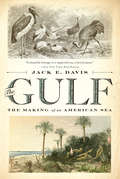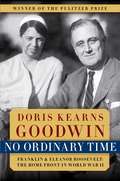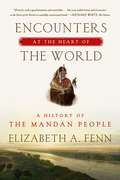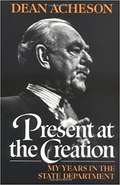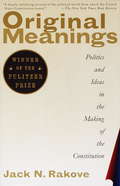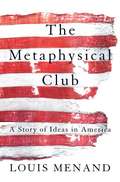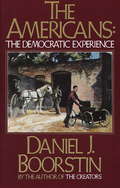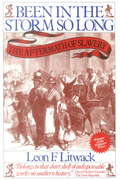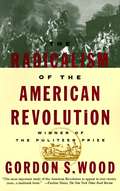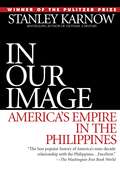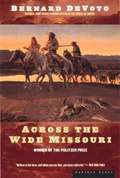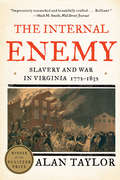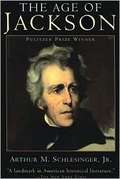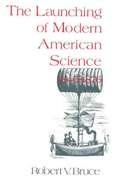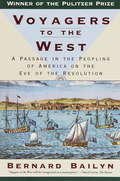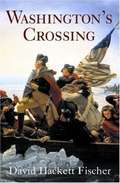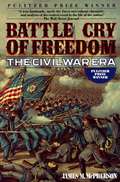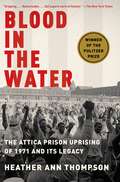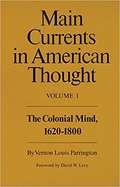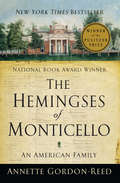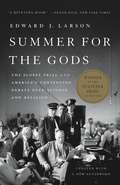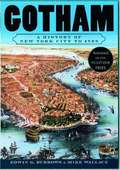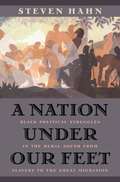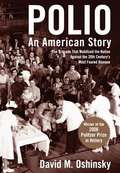Special Collections
Pulitzer Prize Award Winners
Description: Bookshare is pleased to offer the following titles, winners of the Pulitzer Prize Award. Note: Some drama winners are available and are listed under Fiction awards. #award
- Table View
- List View
Embers of War
by Fredrik LogevallThe struggle for Vietnam occupies a central place in the history of the twentieth century. Fought over a period of three decades, the conflict drew in all the world's powers and saw two of them--first France, then the United States--attempt to subdue the revolutionary Vietnamese forces. For France, the defeat marked the effective end of her colonial empire, while for America the war left a gaping wound in the body politic that remains open to this day. How did it happen? Tapping into newly accessible diplomatic archives in several nations and making full use of the published literature, distinguished scholar Fredrik Logevall traces the path that led two Western nations to lose their way in Vietnam. Embers of War opens in 1919 at the Versailles Peace Conference, where a young Ho Chi Minh tries to deliver a petition for Vietnamese independence to President Woodrow Wilson. It concludes in 1959, with a Viet Cong ambush on an outpost outside Saigon and the deaths of two American officers whose names would be the first to be carved into the black granite of the Vietnam Veterans Memorial. In between come years of political, military, and diplomatic maneuvering and miscalculation, as leaders on all sides embark on a series of stumbles that makes an eminently avoidable struggle a bloody and interminable reality. Logevall takes us inside the councils of war--and gives us a seat at the conference tables where peace talks founder. He brings to life the bloodiest battles of France's final years in Indochina--and shows how from an early point, a succession of American leaders made disastrous policy choices that put America on its own collision course with history: Harry Truman's fateful decision to reverse Franklin Delano Roosevelt's policy and acknowledge France's right to return to Indochina after World War II; Dwight Eisenhower's strenuous efforts to keep Paris in the fight and his escalation of U.S. involvement in the aftermath of the humiliating French defeat at Dien Bien Phu; and the curious turnaround in Senator John F. Kennedy's thinking that would lead him as president to expand that commitment, despite his publicly stated misgivings about Western intervention in Southeast Asia. An epic story of wasted opportunities and tragic miscalculations, featuring an extraordinary cast of larger-than-life characters, Embers of War delves deep into the historical record to provide hard answers to the unanswered questions surrounding the demise of one Western power in Vietnam and the arrival of another. This book will become the definitive chronicle of the struggle's origins for years to come.Advance praise for Embers of War "Fredrik Logevall has gleaned from American, French, and Vietnamese sources a splendid account of France's nine-year war in Indochina and the story of how the American statesmen of the period allowed this country to be drawn into the quagmire."--Neil Sheehan, author of A Bright Shining Lie, winner of the Pulitzer Prize and the National Book Award "Fredrik Logevall is a wonderful writer and historian. In his new book on the origins of the American war in Vietnam, he gives a fascinating and dramatic account of the French war and its aftermath, from the perspectives of the French, the Vietnamese, and the Americans. Using previously untapped sources and a deep knowledge of diplomatic history, Logevall shows to devastating effect how America found itself on the road to Vietnam."--Frances FitzGerald, author of Fire in the Lake, winner of the Pulitzer Prize and the National Book Award
The Gulf
by Jack E. DavisThe tragic collision between civilization and nature in the Gulf of Mexico becomes a uniquely American story in this environmental epic.
When painter Winslow Homer first sailed into the Gulf of Mexico, he was struck by its "special kind of providence." Indeed, the Gulf presented itself as America’s sea—bound by geography, culture, and tradition to the national experience—and yet, there has never been a comprehensive history of the Gulf until now. And so, in this rich and original work that explores the Gulf through our human connection with the sea, environmental historian Jack E. Davis finally places this exceptional region into the American mythos in a sweeping history that extends from the Pleistocene age to the twenty-first century.
Significant beyond tragic oil spills and hurricanes, the Gulf has historically been one of the world's most bounteous marine environments, supporting human life for millennia. Davis starts from the premise that nature lies at the center of human existence, and takes readers on a compelling and, at times, wrenching journey from the Florida Keys to the Texas Rio Grande, along marshy shorelines and majestic estuarine bays, profoundly beautiful and life-giving, though fated to exploitation by esurient oil men and real-estate developers.
Rich in vivid, previously untold stories, The Gulf tells the larger narrative of the American Sea—from the sportfish that brought the earliest tourists to Gulf shores to Hollywood’s engagement with the first offshore oil wells—as it inspired and empowered, sometimes to its own detriment, the ethnically diverse groups of a growing nation. Davis' pageant of historical characters is vast, including: the presidents who directed western expansion toward its shores, the New England fishers who introduced their own distinct skills to the region, and the industries and big agriculture that sent their contamination downstream into the estuarine wonderland. Nor does Davis neglect the colorfully idiosyncratic individuals: the Tabasco king who devoted his life to wildlife conservation, the Texas shrimper who gave hers to clean water and public health, as well as the New York architect who hooked the “big one” that set the sportfishing world on fire.
Ultimately, Davis reminds us that amidst the ruin, beauty awaits its return, as the Gulf is, and has always been, an ongoing story. Sensitive to the imminent effects of climate change, and to the difficult task of rectifying grievous assaults of recent centuries, The Gulf suggests how a penetrating examination of a single region's history can inform the country's path ahead.
Winner of the 2018 Pulitzer Prize for History
No Ordinary Time
by Doris Kearns GoodwinDoris Kearns Goodwin&’s Pulitzer Prize–winning classic about the relationship between Franklin D. Roosevelt and Eleanor Roosevelt, and how it shaped the nation while steering it through the Great Depression and the outset of World War II.With an extraordinary collection of details, Goodwin masterfully weaves together a striking number of story lines—Eleanor and Franklin’s marriage and remarkable partnership, Eleanor’s life as First Lady, and FDR’s White House and its impact on America as well as on a world at war. Goodwin effectively melds these details and stories into an unforgettable and intimate portrait of Eleanor and Franklin Roosevelt and of the time during which a new, modern America was born.
Encounters At The Heart Of The World
by Elizabeth A. FennWinner of the 2015 Pulitzer Prize for History
Encounters at the Heart of the World concerns the Mandan Indians, iconic Plains people whose teeming, busy towns on the upper Missouri River were for centuries at the center of the North American universe. We know of them mostly because Lewis and Clark spent the winter of 1804-1805 with them, but why don't we know more? Who were they really? In this extraordinary book, Elizabeth A. Fenn retrieves their history by piecing together important new discoveries in archaeology, anthropology, geology, climatology, epidemiology, and nutritional science. Her boldly original interpretation of these diverse research findings offers us a new perspective on early American history, a new interpretation of the American past.
By 1500, more than twelve thousand Mandans were established on the northern Plains, and their commercial prowess, agricultural skills, and reputation for hospitality became famous. Recent archaeological discoveries show how these Native American people thrived, and then how they collapsed. The damage wrought by imported diseases like smallpox and the havoc caused by the arrival of horses and steamboats were tragic for the Mandans, yet, as Fenn makes clear, their sense of themselves as a people with distinctive traditions endured.
A riveting account of Mandan history, landscapes, and people, Fenn's narrative is enriched and enlivened not only by science and research but by her own encounters at the heart of the world.
Present at the Creation
by Dean AchesonIn these memoirs by the former Secretary of State, Dean Acheson sees himself as having been "present at the creation" of the American century. Acheson's policies were praised by many and damned by others, including Joseph McCarthy.
Pulitzer Prize Winner
Original Meanings
by Jack N. RakoveFrom abortion to same-sex marriage, today's most urgent political debates will hinge on this two-part question: What did the United States Constitution originally mean and who now understands its meaning best? Rakove chronicles the Constitution from inception to ratification and, in doing so, traces its complex weave of ideology and interest, showing how this document has meant different things at different times to different groups of Americans.
Pulitzer Prize Winner
The Metaphysical Club
by Louis MenandWinner of the 2002 Pulitzer Prize for History, a riveting, original book about the creation of modern American thought. The Metaphysical Club was an informal group that met in Cambridge, Massachusetts, in 1872, to talk about ideas. Its members included Oliver Wendell Holmes, Jr., future associate justice of the United States Supreme Court; William James, the father of modern American psychology; and Charles Sanders Peirce, logician, scientist, and the founder of semiotics. The Club was probably in existence for about nine months. No records were kept. The one thing we know that came out of it was an idea -- an idea about ideas.
The Americans
by Daniel J. BoorstinWinner of the Pulitzer Prize. A study of the last 100 years of American history.From the Trade Paperback edition.
Been in the Storm So Long
by Leon F. LitwackWinner of the Pulitzer Prize and the National Book Award. Based on hitherto unexamined sources: interviews with ex-slaves, diaries and accounts by former slaveholders, this "rich and admirably written book" (Eugene Genovese, The New York Times Book Review) aims to show how, during the Civil War and after Emancipation, blacks and whites interacted in ways that dramatized not only their mutual dependency, but the ambiguities and tensions that had always been latent in "the peculiar institution."
The Radicalism of the American Revolution
by Gordon S. WoodIn a grand and immensely readable synthesis of historical, political, cultural, and economic analysis, a prize-winning historian depicts much more than a break with England. He gives readers a revolution that transformed an almost feudal society into a democratic one, whose emerging realities sometimes baffled and disappointed its founding fathers.
In Our Image
by Stanley KarnowTraces the history of the Philippines, discusses the influence of Spain and the United States, and looks at the problems facing the Philippines today.
Across the Wide Missouri
by Bernard A. DevotoAcross the Wide Missouri tells the compelling story of the climax and decline of the Rocky Mountain fur trade during the 1830s. More than a history, it portrays the mountain fur trade as a way of business and a way of life, vividly illustrating how it shaped the expansion of the American West.
Winner of the Pulitzer Prize and the Bancroft Prize.
The Internal Enemy
by Alan TaylorThis searing story of slavery and freedom in the Chesapeake by a Pulitzer Prize-winning historian reveals the pivot in the nation's path between the founding and civil war.
Frederick Douglass recalled that slaves living along Chesapeake Bay longingly viewed sailing ships as "freedom's swift-winged angels." In 1813 those angels appeared in the bay as British warships coming to punish the Americans for declaring war on the empire. Over many nights, hundreds of slaves paddled out to the warships seeking protection for their families from the ravages of slavery. The runaways pressured the British admirals into becoming liberators. As guides, pilots, sailors, and marines, the former slaves used their intimate knowledge of the countryside to transform the war. They enabled the British to escalate their onshore attacks and to capture and burn Washington, D.C. Tidewater masters had long dreaded their slaves as "an internal enemy." By mobilizing that enemy, the war ignited the deepest fears of Chesapeake slaveholders. It also alienated Virginians from a national government that had neglected their defense. Instead they turned south, their interests aligning more and more with their section. In 1820 Thomas Jefferson observed of sectionalism: "Like a firebell in the night [it] awakened and filled me with terror. I considered it at once the knell of the union." The notes of alarm in Jefferson's comment speak of the fear aroused by the recent crisis over slavery in his home state. His vision of a cataclysm to come proved prescient. Jefferson's startling observation registered a turn in the nation's course, a pivot from the national purpose of the founding toward the threat of disunion. Drawn from new sources, Alan Taylor's riveting narrative re-creates the events that inspired black Virginians, haunted slaveholders, and set the nation on a new and dangerous course.
Winner of the 2014 Pulitzer Prize for History
The Age of Jackson
by Arthur Schlesinger Jr.This readable history presents the complicated issues and events which characterize Jackson's presidency. It is a readable history.
Pulitzer Prize Winner
Voyagers to the West
by Bernard BailynWinner of the Pulitzer Prize and the Saloutos Prize of the Immigration History SocietyBailyn's Pulitzer Prize-winning book uses an emigration roster that lists every person officially known to have left Britain for America from December 1773 to March 1776 to reconstruct the lives and motives of those who emigrated to the New World."Voyagers to the West is a superb book...It should be equally admired by and equally attractive to the general reader as to the professional historian."--R.C. Simmons, Journal of American Studies
Washington's Crossing
by David Hackett FischerSix months after the Declaration of Independence, the American Revolution was all but lost. A powerful British force had routed the Americans at New York, occupied three colonies, and advanced within sight of Philadelphia.
Yet, as David Hackett Fischer recounts in this riveting history, George Washington--and many other Americans--refused to let the Revolution die. On Christmas night, as a howling nor'easter struck the Delaware Valley, he led his men across the river and attacked the exhausted Hessian garrison at Trenton, killing or capturing nearly a thousand men. A second battle of Trenton followed within days. The Americans held off a counterattack by Lord Cornwallis's best troops, then were almost trapped by the British force. Under cover of night, Washington's men stole behind the enemy and struck them again, defeating a brigade at Princeton. The British were badly shaken. In twelve weeks of winter fighting, their army suffered severe damage, their hold on New Jersey was broken, and their strategy was ruined.
Fischer's richly textured narrative reveals the crucial role of contingency in these events. We see how the campaign unfolded in a sequence of difficult choices by many actors, from generals to civilians, on both sides. While British and German forces remained rigid and hierarchical, Americans evolved an open and flexible system that was fundamental to their success. The startling success of Washington and his compatriots not only saved the faltering American Revolution, but helped to give it new meaning.
Pulitzer Prize Winner
Battle Cry of Freedom
by James M. McphersonThe history of the Civil War that brings to life, the generals, the presidents, the soldiers, politicians, Abolitionists, Southern fire-eaters, Northern barn-burners, Copperheads, and Know-Nothings. A volume on the war and its background
Pulitzer Prize Winner
Blood in the Water
by Heather Ann ThompsonNATIONAL BOOK AWARD FINALIST * NEW YORK TIMES NOTABLE BOOK FOR 2016 * NAMED A BEST BOOK OF THE YEAR BY THE BOSTON GLOBE, NEWSWEEK, KIRKUS, AND PUBLISHERS WEEKLYTHE FIRST DEFINITIVE HISTORY OF THE INFAMOUS 1971 ATTICA PRISON UPRISING, THE STATE’S VIOLENT RESPONSE, AND THE VICTIMS’ DECADES-LONG QUEST FOR JUSTICE On September 9, 1971, nearly 1,300 prisoners took over the Attica Correctional Facility in upstate New York to protest years of mistreatment. Holding guards and civilian employees hostage, the prisoners negotiated with officials for improved conditions during the four long days and nights that followed. On September 13, the state abruptly sent hundreds of heavily armed troopers and correction officers to retake the prison by force. Their gunfire killed thirty-nine men—hostages as well as prisoners—and severely wounded more than one hundred others. In the ensuing hours, weeks, and months, troopers and officers brutally retaliated against the prisoners. And, ultimately, New York State authorities prosecuted only the prisoners, never once bringing charges against the officials involved in the retaking and its aftermath and neglecting to provide support to the survivors and the families of the men who had been killed. Drawing from more than a decade of extensive research, historian Heather Ann Thompson sheds new light on every aspect of the uprising and its legacy, giving voice to all those who took part in this forty-five-year fight for justice: prisoners, former hostages, families of the victims, lawyers and judges, and state officials and members of law enforcement. Blood in the Water is the searing and indelible account of one of the most important civil rights stories of the last century.(With black-and-white photos throughout)
Main Currents in American Thought
by Vernon Louis ParringtonAnalysis of how our scholarship developed.
Pulitzer Prize Winner
The Hemingses of Monticello
by Annette Gordon-ReedWinner of the National Book Award and the Pulitzer Prize
This epic work tells the story of the Hemingses, whose close blood ties to our third president had been systematically expunged from American history until very recently. Now, historian and legal scholar Annette Gordon-Reed traces the Hemings family from its origins in Virginia in the 1700s to the family's dispersal after Jefferson's death in 1826.
Summer for the Gods
by Edward LarsonIn the summer of 1925, the sleepy hamlet of Dayton, Tennessee, became the setting for one of the 20th century's most contentious dramas: the Scopes trial that pit William Jennings Bryan and the anti-Darwinists against a teacher named John Scopes into a famous debate over science, religion, and their place in public education That trial marked the start of a battle that continues to this day-in Dover, Pennsylvania, Kansas, Cobb County, Georgia, and many other cities and states throughout the country. Edward Larson's classic, Summer for the Gods, is the single most authoritative account of a pivotal event whose combatants remain at odds in school districts and courtrooms. For this edition, Larson has added a new preface that assesses the state of the battle between creationism and evolution, and points the way to how it might potentially be resolved.
Pulitzer Prize Winner
A Nation under Our Feet
by Steven HahnThis is the epic story of how African-Americans, in the six decades after their release from slavery, transformed themselves into a political people- an embryonic black nation.
Pulitzer Prize Winner
Polio
by David M. OshinskyAll who lived in the early 1950s remember the fear of polio and the elation felt when a successful vaccine was found. Now David Oshinsky tells the gripping story of the polio terror and of the intense effort to find a cure, from the March of Dimes to the discovery of the Salk and Sabin vaccines - and beyond. Here is a remarkable portrait of America in the early 1950s, using the widespread panic over polio to shed light on our national obsessions and fears. Drawing on newly available papers of Jonas Salk, Albert Sabin and other key players, Oshinsky paints a suspenseful portrait of the race for the cure, weaving a dramatic tale centered on the furious rivalry between Salk and Sabin. Indeed, the competition was marked by a deep-seated ill will among the researchers that remained with them until their deaths. The author also tells the story of Isabel Morgan, perhaps the most talented of all polio researchers, who might have beaten Salk to the prize if she had not retired to raise a family. As backdrop to this feverish research, Oshinsky offers an insightful look at the National Foundation for Infantile Paralysis, which was founded in the 1930s by FDR and Basil O'Connor. The National Foundation revolutionized fundraising and the perception of disease in America, using "poster children" and the famous March of Dimes to raise hundreds of millions of dollars from a vast army of contributors (instead of a few well-heeled benefactors), creating the largest researchand rehabilitation network in the history of medicine. The polio experience also revolutionized the way in which the government licensed and tested new drugs before allowing them on the market, and the way in which the legal system dealt with manufacturers' liability for unsafe products. Finally, and perhaps most tellingly, Oshinsky reveals that polio was never the raging epidemic portrayed by the media, but in truth a relatively uncommon disease. But in baby-booming America - increasingly suburban, family-oriented, and hygiene-obsessed - the specter of polio, like the specter of the atomic bomb, soon became a cloud of terror over daily life. Both a gripping scientific suspense story and a provocative social and cultural history, Polio opens a fresh window onto postwar America.
Pulitzer Prize Winner
